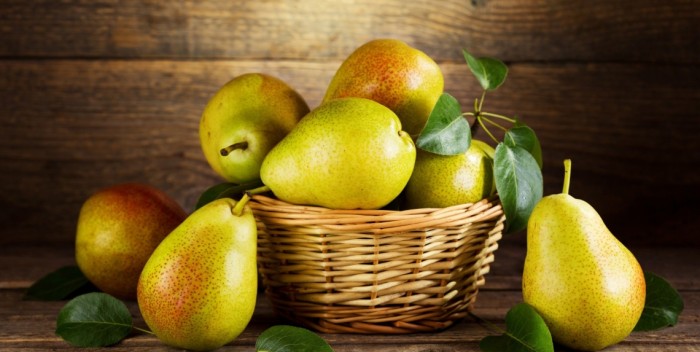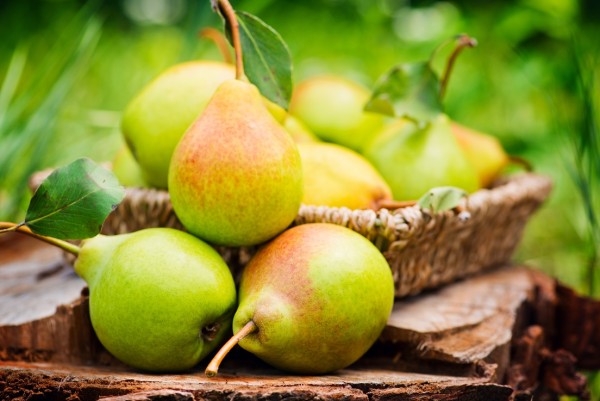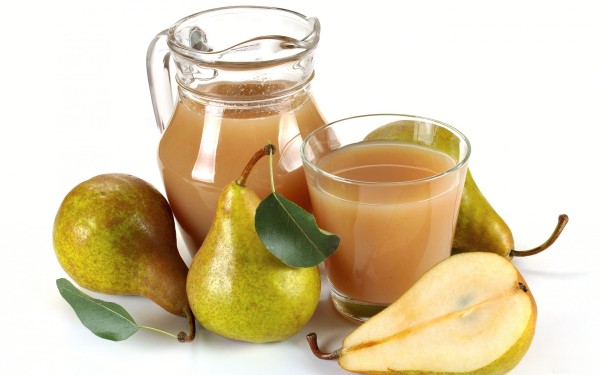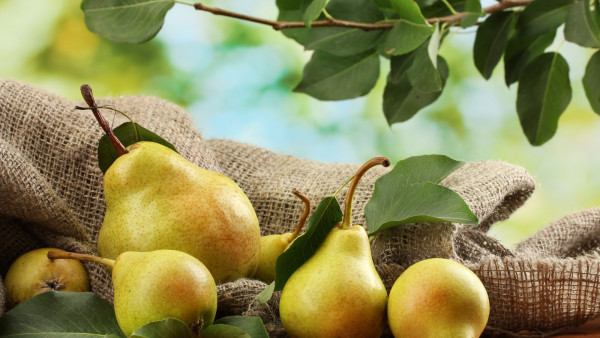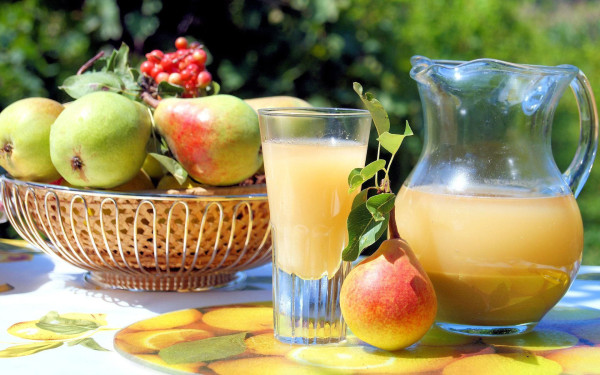Pears: benefits and harms
Pears have been cultivated for many centuries, and it is no longer known what kind of people began to do this for the first time. Now around the world there are more than 5,000 varieties of this plant. All pears differ in their size, color and taste. However, the beneficial properties of the delicious fruit remain unchanged.
Content
The benefits of a pear
This fruit contains many beneficial vitamins such as ascorbic acid, retinol, B vitamins, vitamin K and folic acid. The pear also contains valuable trace elements, such as iron, potassium, sulfur, phosphorus. It is rich in fiber, useful for digestion.
In terms of its taste, the pear seems to be much sweeter than apples, but in reality it contains less sugar than apples, so it is more suitable for dietary nutrition. In addition, the pear does not awaken the appetite, unlike the same apple. Pear can be consumed if you are overweight and have diabetes. It contains a lot of fructose, which does not require insulin to process.
The high fiber content and low calorie content make it possible to use the pear as food when following a diet for slimming... The fruit provides a long-lasting feeling of satiety, helps to cleanse the body of toxins, helps to remove toxins and reduces the level of bad cholesterol. In addition, during the diet, the use of pears can compensate for the lack of vitamins and valuable mineral components.
Other useful properties of pears for the human body have been revealed, for example, with its regular use, immunity is significantly enhanced. The pulp of the pear is quickly digested easily and helps to form a favorable microflora in the intestines, which destroys harmful bacteria.
The pear contains pectins and tannins, which are useful for strengthening the walls of internal organs. A large amount of iron and folic acid is necessary for the normal process of hematopoiesis, restoration, cleansing and strengthening of blood vessels.
Traditional healers use a pear to speed up wound healing. The juice and decoction of this fruit contains arbutin, a natural analogue of an antibiotic that has a good antibacterial effect. With its help, you can quickly get rid of colds, tidy up the nervous system and eliminate the effects of stress.
Pear harm
Despite the abundance of useful properties, not everyone can eat a pear regularly. In some cases, the delicious fruit can be harmful to your health. For example, you should not eat raw pears for gastritis or ulcers. It is much safer with such diagnoses to eat the fruit baked or boiled. The same is true for the elderly - a raw pear will become too heavy food for their stomach.
Sour and tart varieties of pears should not be consumed by people with diseases of the nervous system. In addition, overeating of pears and their use with individual intolerance is harmful.
Pear for children
Most kids the pear is well tolerated, it does not belong to products that cause an allergic reaction in babies. Usually, the pear is introduced into the child's menu after he gets used to the apple, at about seven months of age. Puree and pear juice are well absorbed by the child's body.
It is best to start your acquaintance with the fruit with pear juice. For the first time, give your child just a few drops, then gradually increase the volume of juice, bringing it to 40 ml. Then you can teach your baby to pear puree... When preparing fruit puree on your own, be sure to peel the fruit so that harmful substances do not enter the child's body.
Do not give a pear to a child on an empty stomach. Its pulp contains substances that irritate the intestinal mucosa. It is best to feed the child with the usual food, and give the fruit puree an hour after feeding.
Pear during pregnancy
When it comes to the nutrition of a pregnant woman, from this point of view, a pear can be considered a fairly safe product. The fruits contain few calories, so the pear will not provoke rapid weight gain. Pears contain a sufficient amount of folic acid, which is especially necessary for the body of a pregnant woman for the proper development of the fetus in the first third of pregnancy.
The pear can be considered an excellent source of ascorbic acid. It is useful for fighting infections, helping to strengthen immunity and preventing colds due to its antioxidant properties. According to nutritionists, the pear should be consumed along with foods that contain a lot of iron. This combination allows the iron to be better absorbed and ensures the prevention of anemia in pregnant women.
The delicious fruit is good for all nine months of pregnancy. In the first trimester, the pear helps the tissues of the embryo to grow and develop properly. The presence of folic acid ensures the normal development of the neural tube. Ascorbic acid will help during this period to strengthen the immune defense of the body of the expectant mother, and tocopherol will provide a normal hormonal background and prevent miscarriage.
In the second trimester, the pear will help the normal activity of the heart muscle and blood vessels, reduce the load on the digestive tract and improve the functioning of the urinary system. During this period, it is especially important to organize a balanced diet and fruit intake for a pregnant woman - one of the main elements of a proper diet.
In late pregnancy, eating a pear will make it easier to digest food and relieve constipation, cleanse the body of toxins and improve liver function. Due to its diuretic effect, the use of pears will help get rid of edema. Pear during pregnancy can be eaten not only fresh, but also squeezed juice, boiled compotes, baked or used as jam.
Pear contraindications
Eating pears is contraindicated only in some cases:
- Astringent and sour varieties are not suitable for eating in old age. They are difficult for the body to digest, so constipation is possible. It is also not recommended to eat them for diseases of the nervous system.
- You cannot eat pears on an empty stomach, and it is also not recommended to eat fatty and heavy foods immediately after pears.
- Do not drink water while consuming pears.
- Fresh pears have a laxative effect on the intestines. Therefore, with an intestinal disorder, especially with an exacerbation of such a condition, fresh pears cannot be consumed.
- For chronic diseases of the gastrointestinal tract, it is better to take soft varieties of this fruit or subject them to heat treatment.
